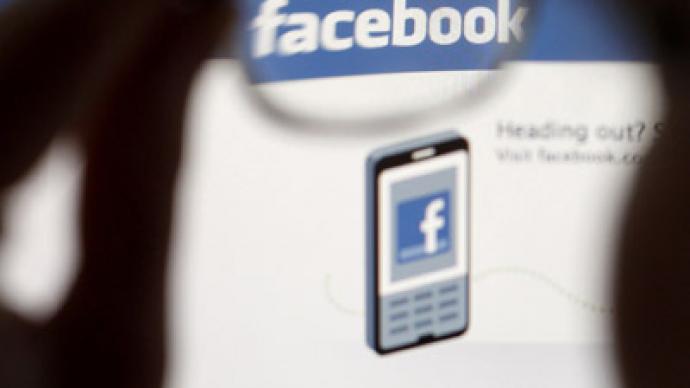Graphic 'Graph Search': New Facebook system reveals too much

Introducing its new search engine, Facebook assured users that the system is strongly privacy aware. However, prank searches made by one of the beta testers have revealed that the system may expose just a bit more people would want.
The new ‘Graph Search’ system was presented by Facebook founder Mark Zuckerberg and his team last week. The engine was designed to search Facebook for specific information, be it a Mexican restaurant your Facebook friends like the most or single people from India in your neighborhood. The current Graph Search is a beta version still to be tested; it is limited to searches of people, their likes, places, interests and photos. Posts and status messages so far are out of reach, but soon may become searchable as well, Forbes reported.During the presentation Zuckerberg and his crew devoted a special part to the issue of Facebook privacy. They assured the audience that the engine is only going to process data that has been allowed to be processed by the users themselves. To demonstrate the system at work the team conducted a number of sample searches including ‘Friends who like Star Wars and Harry Potter’, ‘Languages my friends speak’, ‘Music liked by people who like Mitt Romney’ and ‘Music liked by people who like Obama’.However, one of the people invited to test the beta version of the engine soon found out that Graph Search can find way more than Star Wars fans and music preferences of Obama supporters.In his blogpost published on Wednesday, computer programmer and ‘Gadget Geek’ Tom Scott revealed some peculiar searches he conducted using Graph Search. The results turned out to be quite controversial, if not scandalous.Scott found out that the new search engine will readily find ‘Married people, who like prostitutes’ and ‘Spouses of married people who like Ashley Madison’, a dating website for people who are already in a relationship.Furthermore, he was able to find ‘Islamic men interested in men who live in Tehran, Iran’, where homosexual relations are prohibited by law and ‘Places where they’ve worked’.Something corporate America would not like – a search exposing ‘Current employers of people who like Racism’.These are just some of the searches Scott was able to do using the new Graph Search. When posting the results, he blurred the names and the pictures of those he found.Commenting on his research, Scott said that although the search does not directly violate Facebook privacy settings, users just need to be aware of the new search engine capabilities and might want to reconsider the information they put on the web.“If it’d be awkward if it was put on a screen in Times Square, don’t put it on Facebook. Oh, and check your privacy settings again,” he said.Facebook has repeatedly been accused of violating the privacy of its users. In early January, the EU pressured the world`s most popular social network to provide more data protection. In September, Facebook was forced to stop using its facial recognition software in Europe following an investigation by the Office of the Data Protection Commissioner in Ireland.
Envy and dissatisfaction on Facebook
A recent study conducted by German scientists revealed that envy and dissatisfaction are among most popular feelings Facebook users experience while browsing through their friends’ ‘timelines’.The survey of some 600 Facebook users showed that one third of them have negative feelings as using the social network mostly because they are envying their ‘Facebook friends’, whose life seems more interesting and wholesome than their own.“Although respondents were reluctant to admit feeling envious while on Facebook, they often presumed that envy can be the cause behind the frustration of ‘others’ on this platform – a clear indication that envy is a salient phenomenon in the Facebook context,” said project manager Dr. Hanna Krasnova from Humboldt-Universität.She explained that access to positive news and the profiles of seemingly successful friends bolsters social comparison, which can easily provoke envy. The survey found that about one-fifth of all recent online and offline events provoking envy among respondents were posted on Facebook. According to the researchers, respondents’ envy often led to “embellishing their Facebook profiles” creating what they called “envy spiral.”It was also established that the envy provoked by looking through Facebook lead many to “greater life dissatisfaction”.“Considering the fact that Facebook use is a worldwide phenomenon and envy is a universal feeling, a lot of people are subject to these painful consequences,” Co-author Helena Wenninger of TU-Darmstadt University said.














